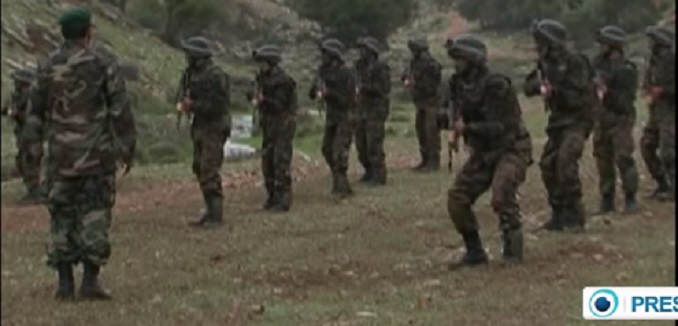Hezbollah has set up a “security zone” along the length of the Syria-Lebanon border – and has staffed it with over 1,000 fighters who patrol the area on a 24-hour basis – as the Iran-backed terror organization struggles to cope with mounting losses in Syria and with continued blowback from that war inside Lebanon. Veteran Israeli security correspondent Avi Issacharoff described the “zone” on Friday as “a series of permanent bases built by the organization in recent months in order to prevent” infiltration into Lebanon by Sunni fighters:
The fighters are protected by fortifications and earthworks, and they are supported by a complex logistical effort, which includes food, clothing, and arms which arrive in an orderly fashion.
In other words, this is not the 1990s Hezbollah, and not even Hezbollah from the last decade. The Shi’ite organization no longer operates solely as a terrorist or guerrilla group. It does that as well, but Hezbollah has adopted the modus operandi of nothing less than a conventional army in its efforts to keep Sunni fighters out of Lebanon.
Observers seem increasingly convinced, however, that Lebanon will end up being dragged into the conflict. The Associated Press (AP) reported a few weeks ago that – though the crisis had been “slow in coming” – both the Lebanese Armed Forces (LAF) and Hezbollah fighters were now finding themselves in regular firefights along the Syrian border.
Lebanon’s Daily Star subsequently reported how “residents and political movements in… villages [along the Syrian border] have voiced fears that Hezbollah and the Syrian regime might push” fighting into their areas. By last Monday The New York Times, describing sectarian clashes in Tripoli between Sunni fighters and LAF soldiers, was ready to bluntly note that “the expanding border conflict threatens to engulf residents of Shiite, Christian and Sunni villages.” A day later The Washington Post conveyed further analysis about Hezbollah’s positioning:
“Hezbollah is spread thin. They are waging so many battles and are positioned on so many fronts,” said Imad Salamey, associate professor of political science at the Beirut-based Lebanese American University.
Meanwhile the dual dynamics – losing soldiers abroad, and risking violence back in Lebanon – had sapped the organization’s domestic support inside Lebanese Shiite communities. The dynamic has potential strategic implications. Hussain Abdul-Hussain, the Washington bureau chief of the Kuwaiti newspaper Al Rai, on Wednesday assessed that “Hezbollah’s ability to project power relies on the support of Lebanon’s Shiites,” and that “Hezbollah’s resources, both military and civilian, have been strained.”
The protracted conflict in Syria, which Hezbollah is all but universally understood to have entered at Iran’s behest, now risks a situation in which the terror organization will “sooner or later… run out of men to recruit, which will pose a serious problem for the party.”
[Photo: PressTV News Videos / YouTube]




